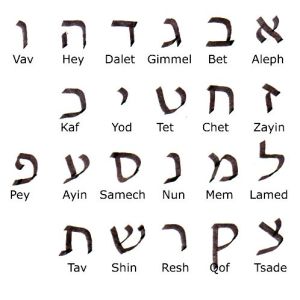 I spent yesterday at a conference about teaching Hebrew to students with various learning needs. The conference wasn’t as useful as I had hoped*, but it left me thinking a lot about why, of all the second languages my children could be learning, we have chosen Hebrew. There are many languages that would serve them well if they choose to follow their father’s footseps and travel the world; Hebrew is one of the least useful, ranking right up there with Laotion and Tok Pisin. After all, there just aren’t that many Israelis, and most of them speak English better than my children or I will ever speak Hebrew.
I spent yesterday at a conference about teaching Hebrew to students with various learning needs. The conference wasn’t as useful as I had hoped*, but it left me thinking a lot about why, of all the second languages my children could be learning, we have chosen Hebrew. There are many languages that would serve them well if they choose to follow their father’s footseps and travel the world; Hebrew is one of the least useful, ranking right up there with Laotion and Tok Pisin. After all, there just aren’t that many Israelis, and most of them speak English better than my children or I will ever speak Hebrew.
Granted, we didn’t exactly make a choice. We did choose to send them to a Jewish day school, where the second language happens to be Hebrew. At least their school gives some kind of second language instruction in elementary school, unlike the public schools which have phased these programs out along with recess, gym, art, music, and pretty much everything else that doesn’t appear on a standardized test.
Despite the relatively small number of Hebrew speakers in the world, I still think learning Hebrew well (not at the Sunday school level) is a valuable use of their time. I took a wonderful class at Teacher’s College many years ago called “Teaching Foreign Languages to Young Children,” which convinced me that the study of any foreign language is fantastic for brain development, and will make it easier to learn subsequent languages later in life.
More importantly, I fantasize that my daughters will become lifelong Jewish learners. No matter what their level of commitment to Judaism is, and how far they take their educations, knowing Hebrew ~ and by this I mean understanding it, not just being able to sound out the words ~ will give them the ability to access the religion, especially its sacred texts, and make it their own in a way that is virtually impossible otherwise.
Even if we could afford to travel overseas, I’m not sure Israel would be our first choice for a family trip. Nevertheless, I’m thrilled by their course of study.
*The best thing I learned there? The @ symbol in an email address is called a strudel in Hebrew.
More from Beliefnet and our partners

